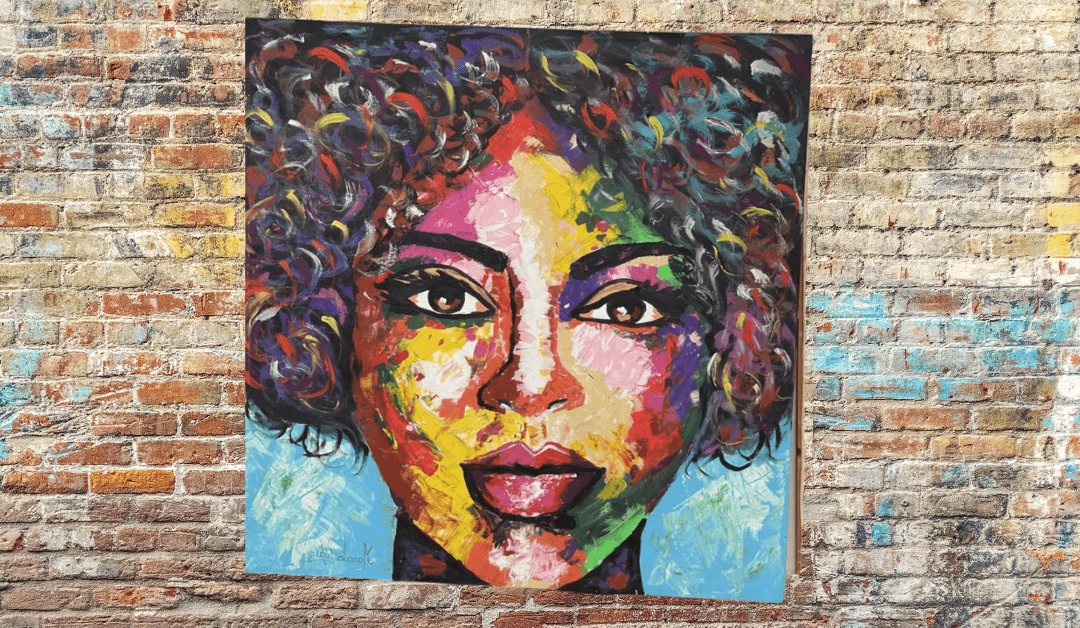The painting above has nothing to do with this blog–hmmm, or does it. It’s from an artist in Mexico. Beaches in Mexico are a beautiful place to relax and taking breaks is important for psychological health. So maybe it’s relevant after all!
One of the characteristics of healthy people, according to psychologists, is flexible responding. Psychological flexibility means you can respond in a healthy way to different situations and people, and do so in a way that fits with your personal values. Being psychologically flexible helps you adjust to different situations, deal with stress, and improve your well-being.
It’s also one of the characteristics needed to form friendships. That’s pretty powerful. A huge amount of evidence now suggests that it’s important to leading more meaningful lives based on what’s really important to you. That’s even more powerful.
So what does flexible responding mean in real life? Well, it means you can adjust the way you behave based on what’s needed in the situation. Some people are very comfortable in their daily lives and have a routine that works for them. But that routine, when it controls what you do, can block relationships.
Doris has a routine that works for her. She gets up at six every morning, and feeds and walks her dogs. She watches the morning news while having breakfast and then goes to work. She has a salad for lunch and she stops work at 5:30 every day. She has a protein and a vegetable for dinner, does household chores and then watches a couple of television shows before going to sleep. Doris enjoys her routine. She feels anxious when she can’t follow it. The problem comes when someone invites her to do something different. Even when it’s something she wants to do, she becomes anxious and worried because she is only comfortable in her familiar routine. In fact, if someone comes to visit, she struggles with spending time with them. Even if she does, she is constantly thinking of what she “should” be doing. Doris’s routine is rigid, and she isn’t able to respond flexibly to the situation.
Doris struggles with flexibility in other ways too. She has a serious, professional manner about her. In fact, she rarely smiles. She follows the rules and is reserved, except she tends to dress in a rebellious way. She doesn’t show any expression on her face and others often describe her as angry. At work, this demeanor is seen as a professional manner. But when there is social interaction, such as an office celebration, she’s the same. She remains reserved and serious even when the rest of the crew are singing and forming line dances.
It’s the same with her nieces. She cares deeply about them, but she doesn’t play with them or tell them how she feels. They don’t enjoy being around her. She values friends and family, but spends her time in her routine and accomplishing tasks. When she’s angry with someone, she’s done with the relationship and doesn’t forgive. She’s not flexible with others making changes either.
Perhaps you understand Doris. Maybe you are someone who needs and enjoys structure and routine, and have great difficulty letting go and having fun or connecting with others, even when the situation calls for that. Perhaps you have a certain way of interacting that is the same regardless of whether you are at work or at a family celebration. You may be confused as to why it’s so difficult to connect and see yourself as just being a loner.
Being psychologically flexible means that you can follow a routine when that’s helpful and not follow it when it’s not helpful. It means you can rein in your emotions when you need to do so and that you can also express yourself openly when that’s appropriate. If you aren’t good at expressing appreciation, caring, and upset and if you struggle to let go and have fun, that can interfere with connecting with people.
If this sounds like you, then you might wish to be mindful of when you are allowing your routines to get in the way of relationships and what’s really important to you. You might consider being more open with your feelings in the right context, too. This means showing your emotions on your face and through body language as well. If you aren’t aware of your facial expressions, you might try talking into a mirror and observing yourself. Do you smile? Do you look warm and engaging? Are you relaxed or tense? Do you make eye contact?
The way you express yourself verbally can also have an impact. Do you answer questions that you are asked or do you avoid answering directly? Do you answer questions with questions? Do you agree with whatever someone says to avoid conflict? Do you plan what you are going to say to people? These could be ways that you avoid letting someone get to know you. That could feel safe and self-protective, but it’s also a way of keeping people at a distance. If they don’t know you, how can you be friends?
Being more open with others can help form connections and help alleviate loneliness. Consider trying to be more open to others in both verbal and nonverbal ways over a period of time and notice how others respond to you. The research suggests that being more open with others will lead to them being more open with you. You might find a friend.

